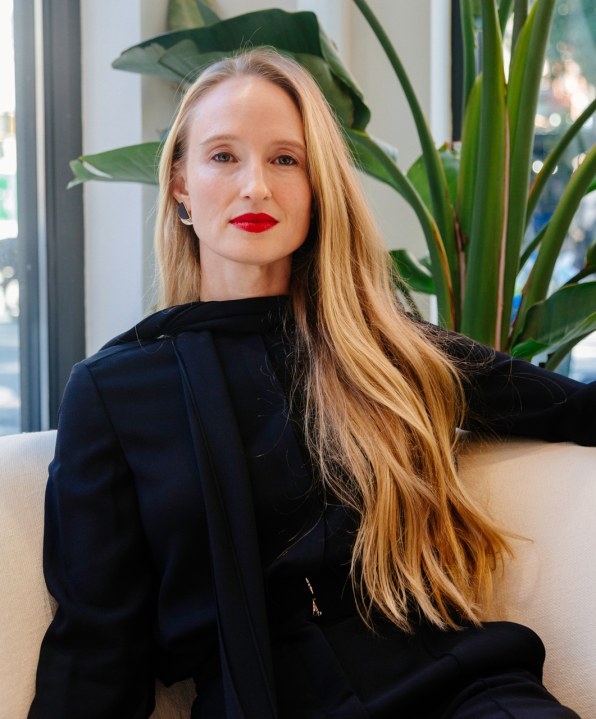How to build a fashion brand that considers both its workers and the planet
Just as the food industry revived the concept of farm-to-table, emphasizing sustainability, and transparency in sourcing and all along the supply chain, a B Corp-certified, luxury clothing brand believes that the fashion industry should take a similar approach.
Women’s apparel brand, Another Tomorrow, has three core pillars on which it conducts its business: environmental, animal, and human impact. The founder, Vanessa Barboni Hallik—who joined us on the World Changing Ideas podcast to discuss her company’s holistic approach to impact—says it’s not enough for companies to make grand sustainability promises when they fail to consider impact on humans. “It doesn’t stop at just not harming the earth,” she says. “If that’s part of your value set, you probably also don’t want to be in a situation where you’re supporting brands that aren’t paying living wages.”

[Photo: Another Tomorrow]
Another Tomorrow’s first collection only had four core materials, and that minimalism hasn’t changed dramatically. Hallik says that responsible sourcing does narrow the scope of raw materials. “The world is not your oyster when it comes to sustainability,” she says, “but really interesting things happen when you have these constraints.” It makes you focus on the materials you do use, and find ways to increase their versatility. For Hallik, those materials include ethical wool, organic cotton and linen, recycled cashmere, and buttons made from corozo nuts, native to South America.
The company sources its sustainable materials from around the world. The wool, for instance, is primarily from a sheep farm in Tasmania, run by a former climate scientist-turned-shepherdess, who doesn’t send her sheep sheep to be slaughtered at the end of their lives. “We don’t use anything that requires you to harm or kill the animal,” she says. That, too, limits choices. Silk, for instance, is made by boiling silkworms, which kills an estimated 606 trillion a year. The company also don’t use down from ducks or geese, which are often killed in production.
Crucially, Another Tomorrow also places great focus on human impact, where she says most brands, even those making lofty sustainability goals, ignore, “because it cuts straight to the bottom line,” she says. Paying fair wages simply increases costs. “This is the area where investors and this whole ESG movement is having the most difficulty, because it’s not necessarily in the perceived best interests of shareholders.” Another Tomorrow, she says, assures living wages for all its garment workers, set to local standards.
Ultimately: “We want to be a living, breathing case study for what’s possible,” Hallik says. And, she hopes that will raise awareness among consumers about what goes into the production of their everyday garments. Most of what Hallik knows now didn’t even occur to her when she first started. “We’re not here to say, stop doing this, stop doing that,” she says. “It’s really not about judgment. It’s about offering an alternative that we believe is already fundamentally aligned with where a lot of people are. They just have no idea.”
You can listen and subscribe to World Changing Ideas on Apple Podcasts, Stitcher, Spotify, Google Podcasts, or wherever you get your podcasts.
Fast Company , Read Full Story
(50)



